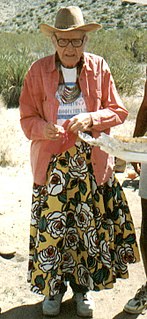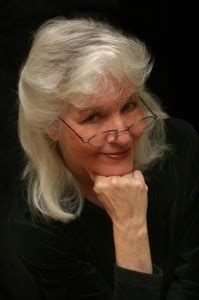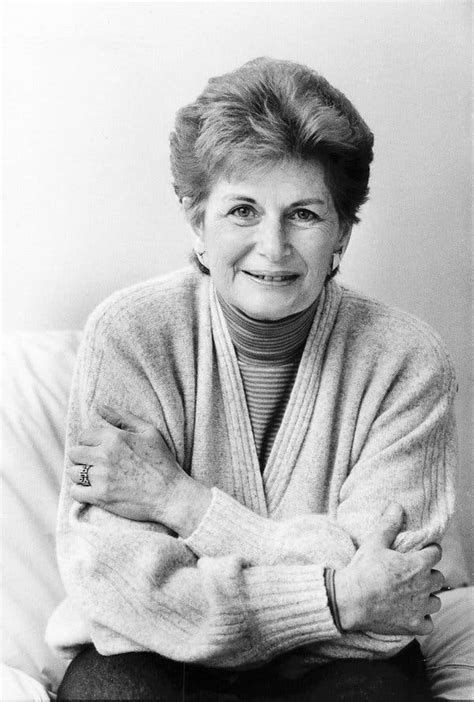Top 453 Adolescence Quotes & Sayings - Page 8
Explore popular Adolescence quotes.
Last updated on April 16, 2025.
I figure if Doc is right about the time I have left,I should wrap up my adolescence in the next few days, get into my early productive stages about the third week of school, go through my midlife crisis during Martin Luther King Jr's birthday, redouble my efforts at productivity and think about my legacy, say, Easter, and start cashing in my 401(k)s a couple weeks before Memorial Day.
Most people don't get out of childhood, or adolescence, without being wounded for telling the truth. Someone says 'you can't say that' or 'you shouldn't say that' or 'that wasn't appropriate' so most of us human beings have a very deep underlying conditioning that says that just to be who we are is not OK.......Most human beings have an imprinting that if they're real, if they're honest, somebody's not gonna like it. And they won't be able to control their environment if they tell the truth.
I wanted to know why people follow rules blindly, or why girls had to act a certain way and boys didn't. Why could boys ask girls out and girls not ask guys out? Why did girls have to shave their legs and guys didn't? Why did society, like, set everything up the way they did? My whole adolescence was full of unanswered whys. Because they never got answered, I just kept lighting fires everywhere - metaphorically speaking.
Perhaps it is better in this present world of ours that a revolutionary idea or invention instead of being helped and patted, be hampered and ill-treated in its adolescence - by want of means, by selfish interest, pedantry, stupidity and ignorance; that it be attacked and stifled; that it pass through bitter trials and tribulations, through the heartless strife of commercial existence. So do we get our light. So all that was great in the past was ridiculed, condemned, combated, suppressed - only to emerge all the more powerfully, all the more triumphantly from the struggle.
I know exactly what that movie's [Brokeback mountain] about. I can't define it; it doesn't tie up in a perfect bow. But it's about adolescence. It's about what it feels like - this isn't meant as a criticism, but like things I didn't relate to, which were high school movies. Where I'd watch it and I'd be like, "Well, am I like the kid that nobody likes? Or am I like the person who everybody [likes]?" I couldn't [tell]. I was like quantifying, putting me in a box. "This is my personality at that age" and "I'm this kind of person" just felt like bullshit to me.
I spent my life folded between the pages of books.
In the absence of human relationships I formed bonds with paper characters. I lived love and loss through stories threaded in history; I experienced adolescence by association. My world is one interwoven web of words, stringing limb to limb, bone to sinew, thoughts and images all together. I am a being comprised of letters, a character created by sentences, a figment of imagination formed through fiction.
Listening to learn isn't about giving advice--at least not until asked--but about trying to understand exactly what someone means,how it is that someone looks at and feels about her particular situation.... Listening to learn from a daughter in adolescence, conspiring with her thoughts and feelings, keeps a mother in touch with a daughter's growing and changing self.
Witness the American ideal: the Self-Made Man. But there is no such person. If we can stand on our own two feet, it is because others have raised us up. If, as adults, we can lay claim to competence and compassion, it only means that other human beings have been willing and enabled to commit their competence and compassion to us--through infancy, childhood, and adolescence, right up to this very moment.
It is not simply that these two cities are perched side by side at the edge of the Pacific; it is that adolescence sits next to middle age, and they don't know how to relate to each other. In a way, these two cities exist in different centuries. San Diego is a post-industrial city talking about settling down, slowing down, building clean industry. Tijuana is a preindustrial city talking about changing, moving forward, growing. Yet they form a single metropolitan area.
There have been times in my adolescence where I gave up. I was like, 'I'm just never going to be pretty. I'm never going to be like one of those people on the front of magazines.' It always seemed really strange to me that the projection of how people are in advertisements looked nothing like the people who were actually buying them. You know what I mean? I never understood that mismatch, and now I really start to see that the people you see in the media are a lot more like people actually are.
When we begin to love and respect Great Mother Nature's gift to us of gayness, we'll discover that the bondage of our childhood and adolescence in the trials and tribulations of neitherness was actually an apprenticeship for teaching her children new cutting edges of consciousness and social change. In stunning paradox, our neitherness is our talisman, our fairie wand, our gift we bring to the hetero world to....transform their pain into healings; ...transform their tears to laughter: ...transform their hand-me-downs to visions of loveliness.
I love '80s happy music. I love Cyndi Lauper and Madonna, and the idea of making music that's about people celebrating fun. I spent my late adolescence in New York and I used to go to a lot of gay clubs. The music there was always just about love and connection and celebrating life. I think, for people going through something really hard, to go to a place where you can let loose and listen to music as a distraction, that's about a better place, a better way of life - that's where all the attraction lies.
The experience of being in between-between the time we leave home and arrive? at our destination; between the time we leave adolescence and arrive at adulthood; between the time we leave doubt and arrive at faith. It is like the time when a trapeze artist lets go the bars and hangs in midair, ready to catch another support: it is a time of danger, of expectation, of uncertainty, of excitement, or extraordinary aliveness.
All teenagers knew this was true. The process of growing up was nothing more than figuring out what doors hadn't yet been slammed in your face. For years, parents tell you that you can be anything, have anything, do anything. That was why she'd been so eager to grow up-until she got to adolescence and hit a big fat wall ofreality. As it turned out, she couldn't have anything she wanted. You didn't get to be pretty or smart or popular just because you wanted it. You didn't control your own destiny, you were too busy trying to fit in.
Most literature on the culture of adolescence focuses on peer pressure as a negative force. Warnings about the "wrong crowd" read like tornado alerts in parent manuals. . . . It is a relative term that means different things in different places. In Fort Wayne, for example, the wrong crowd meant hanging out with liberal Democrats. In Connecticut, it meant kids who weren't planning to get a Ph. D. from Yale.
In 1992 I was doing one of my first ever tours and I was in Heathrow airport and I saw these middle-aged musicians who had clearly been on tour for decades, and they all looked haggard and unhappy and unhealthy. I vowed to myself that I would never be that person. Flash forward 20 years and I found myself in Heathrow looking haggard and unhappy and unhealthy. I decided I would rather spend my time staying home working on music and making dinner with friends, instead of spending six months in a hotel in a state of depressing suspended adolescence.
I did not write it [Coming of Age in Samoa] as a popular book, but only with the hope that it would be intelligible to those who might make the best use of its theme, that adolescence need not be the time of stress and strain which Western society made it; that growing up could be freer and easier and less complicated; and also that there were prices to pay for the very lack of complication I found in Samoa - less intensity, less individuality, less involvement with life.
Adolescence is a time when children are supposed to move away from parents who are holding firm and protective behind them. When the parents disconnect, the children have no base to move away from or return to. They aren't ready to face the world alone. With divorce, adolescents feel abandoned, and they are outraged at that abandonment. They are angry at both parents for letting them down. Often they feel that their parents broke the rules and so now they can too.
Something that had an enormous influence over my relationship with language was my stammer. I had a really bad stammer in my childhood and adolescence, and that imbues you with two things. First, a hyper-sensitivity to grammar, because a stammerer will have problematic sounds, impossible verbal stumbling blocks. Second, writing is just such a joy when you have a problem with speaking. It's so astonishing to watch language coming out of your pen without any hesitation or dysfluency.
What is now happening to the people of the East as of the West is like what happens to every individual when he passes from childhood to adolescence and from youth to manhood. He loses what had hitherto guided his life and lives without direction, not having found a new standard suitable to his age, and so he invents all sorts of occupations, cares, distractions, and stupefactions to divert his attention from the misery and senselessness of his life. Such a condition may last a long time.
Personal change, growth, development, identity formation--these tasks that once were thought to belong to childhood and adolescence alone now are recognized as part of adult life as well. Gone is the belief that adulthood is, or ought to be, a time of internal peace and comfort, that growing pains belong only to the young; gone the belief that these are marker events--a job, a mate, a child--through which we will pass into a life of relative ease.
It was in reading Tristam Shandy that I noticed how it is primarily men who gravitate towards the game-playing self-reflexive style. There is an alienation from emotion in it, a Nervous Nelly fear of letting go and being "exposed." As an attitude towards life, it betrays a perpetual adolescence. Those who hurled themselves after Derrida were not the most sophisticated but the most pretentious, and least creative members of my generation of academics.
I've been a writer and a parent since adolescence, it feels like, and I'm still making both gigs up as I go along. I did both in different forms of isolation - too young by conventional standards, too far off-grid culturally and geographically. So my experience is probably too specific to be useful. None of us do this stuff the same way. We just try to endure and press on, I guess.
Girls face two major sexual issues in America in the 1990s: One is an old issue of coming to terms with their own sexuality, defining a sexual self, making sexual choices and learning to enjoy sex. The other issue concerns the dangers girls face of being sexually assaulted. By late adolescence, most girls today either have been traumatized or know girls who have. They are fearful of males even as they are trying to develop intimate relations with them.
At 17, the smallest crises took on tremendous proportions; someone else's thoughts could take root in the loam of your own mind; having someone accept you was as vital as oxygen. Adults, light years away from this, rolled their eyes and smirked and said, 'This too shall pass' - as if adolescence was a disease like chicken pox, something everyone recalled as a milk nuisance, completely forgetting how painful it had been at the time.
For most people, self-awareness and self-pity blossom simultaneously in early adolescence. It's about that time that we start viewing the world as something other than a whoop-de-doo playground, we start to experience personally how threatening it can be, how cruel and unjust. At the very moment when we become, for the first time, both introspective and socially conscientious, we receive the bad news that the world, by and large, doesn't give a rat's ass.
One thing is certain: for many of those who came back from WWII, the music of Frank Sinatra was no consolation for their losses. Some had lost friends. Some had lost wives and lovers. All had lost portions of their youth. More important to the Sinatra career the girls started marrying the men who came home. Bobby socks vanished from many closets. The girls who wore them had no need anymore for imaginary lovers; they had husbands. Nothing is more embarrassing to grownups than the passions of adolescence, and for many, Frank Sinatra was the passion.
I have dwelt ever in realms apart from the visible world; spending my youth and adolescence in ancient and little-known books, and in roaming the fields and groves of the region near my ancestral home. I do not think that what I read in these books or saw in these fields and groves was exactly what other boys read and saw there; but of this I must say little, since detailed speech would but confirm those cruel slanders upon my intellect which I sometimes overhear from the whispers of the stealthy attendants around me.
Something went klunk. Like a nickel dropping in a soda machine. One of those small insights that explains everything. This was puberty for these boys. Adolescence. The first date, the first kiss, the first chance to hold hands with someone special. Delayed, postponed, a decade's worth of longing--while everybody around you celebrates life, you pretend, suppress, inhibit, deprive yourself of you own joy--but finally ultimately, eventually, you find a place where you can have a taste of everything denied.
I was influenced by the Beats because I actually just began to commit adolescence around 1955, when "Howl" and Rebel Without a Cause and a lot of other new things were popping up. (Again I'm trying to give you a finite version of this career.) And then I came under the sway of Wallace Stevens when I was in college and graduate school, and basically set as a life goal the ambition of writing third-rate Wallace Stevens. I thought I would be completely content if I was recognized at some later point in my life as a third-rate Wallace Stevens.
The signs that presage growth, so similar, it seems to me, to those in early adolescence: discontent, restlessness, doubt, despair, longing, are interpreted falsely as signs of decay. In youth one does not as often misinterpret the signs; one accepts them, quite rightly, as growing pains. One takes them seriously, listens to them, follows where they lead. ... But in the middle age, because of the false assumption that it is a period of decline, one interprets these life-signs, paradoxically, as signs of approaching death.
Without beauty a girl is unhappy because she has missed her chance to be loved. People do not jeer at her, they are not cruel to her, but it is as if she were invisible, no eyes follow her as she walks. People feel uncomfortable when they are with her. They find it easier to ignore her. A girl who is exceptionally beautiful, on the other hand, who has something which too far surpasses the customary seductive freshness of adolescence, appears somehow unreal. Great beauty seems invariably to portend some tragic fate.
The years between thirty-five and sixty-five revolve before the passive mind as one unexplained, confusing merry-go-round. True, they are a merry-go-round of ill-gaited and wind-broken horses, painted first in pastel colors, then in dull grays and browns, but perplexing and intolerably dizzy the thing is, as never were the merry-go-rounds of childhood or adolescence; as never, surely, were the certain-coursed, dynamic roller-coasters of youth. For most men and women these thirty years are taken up with a gradual withdrawal from life.






























